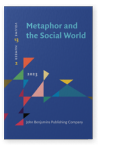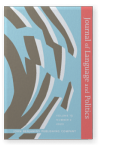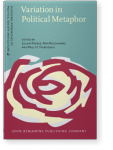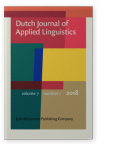Pauline Heyvaert
List of John Benjamins publications for which Pauline Heyvaert plays a role.
2023 Metaphors, political knowledge and the basic income debate in Belgium: An experimental study of the framing impact of metaphors on political representations Metaphor and the Social World 13:2, pp. 269–292 | Article
The framing impact of political discourses has long been attested for. Metaphors in particular are known to ease the understanding of complex concepts and processes. Yet, the question remains to what extent metaphors do work the same on different recipients? Based on an experimental design, we… read more
2020 Metaphors in political communication: A case study of the use of deliberate metaphors in non-institutional political interviews Journal of Language and Politics 19:2, pp. 201–225 | Article
This article analyses the use of (deliberate) metaphors in political discourse produced by French-speaking Belgian regional parliamentarians during non-institutional political interviews. The article first investigates if the use of deliberate metaphor limits itself to a particular type of… read more
2019 Chapter 2. Fairies, Christmas miracles and sham marriages: A diachronic analysis of deliberate metaphors in Belgian political discourse Variation in Political Metaphor, Perrez, Julien, Min Reuchamps and Paul H. Thibodeau (eds.), pp. 35–60 | Chapter
This research analyzes the use of potentially deliberate metaphors in Belgian governmental policy statements over a time span of ten years. The analysis of this type of metaphor allows for further investigation into metaphor variation. Our results suggest that one variable that plays a role in the… read more
2018 Het gebruik van de Nederlandse plaatsingswerkwoorden ‘zetten’ en ‘leggen’ door Franstalige leerders van het Nederlands Dutch Journal of Applied Linguistics 7:1, pp. 45–67 | Article
This research presents the results of a quantitative and qualitative analysis of the use of the Dutch placement verbs zetten (‘put’) and leggen (‘lay’) by French-speaking learners of Dutch. The experiment consisted of a productive task. The results confirm that the use of Dutch placement verbs… read more



